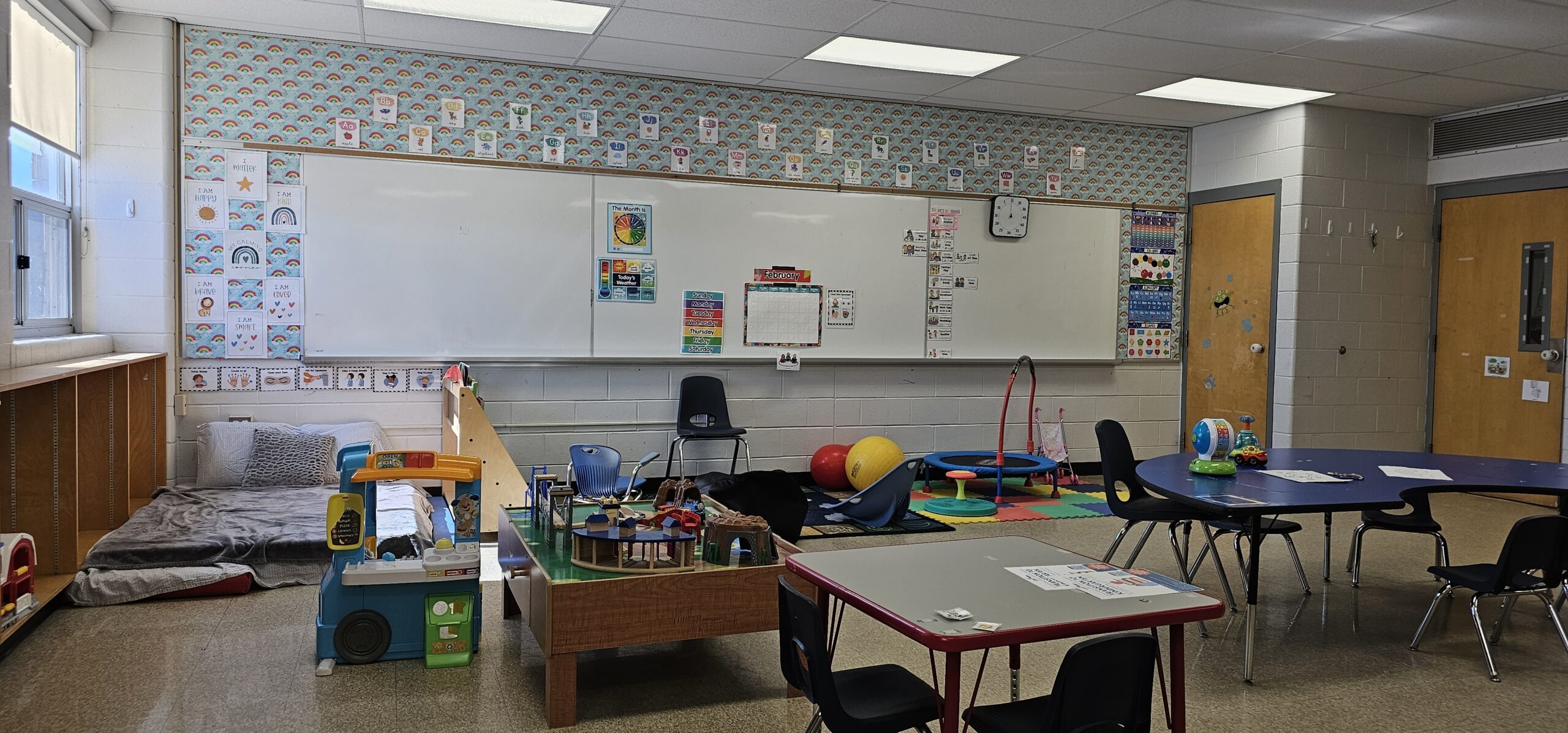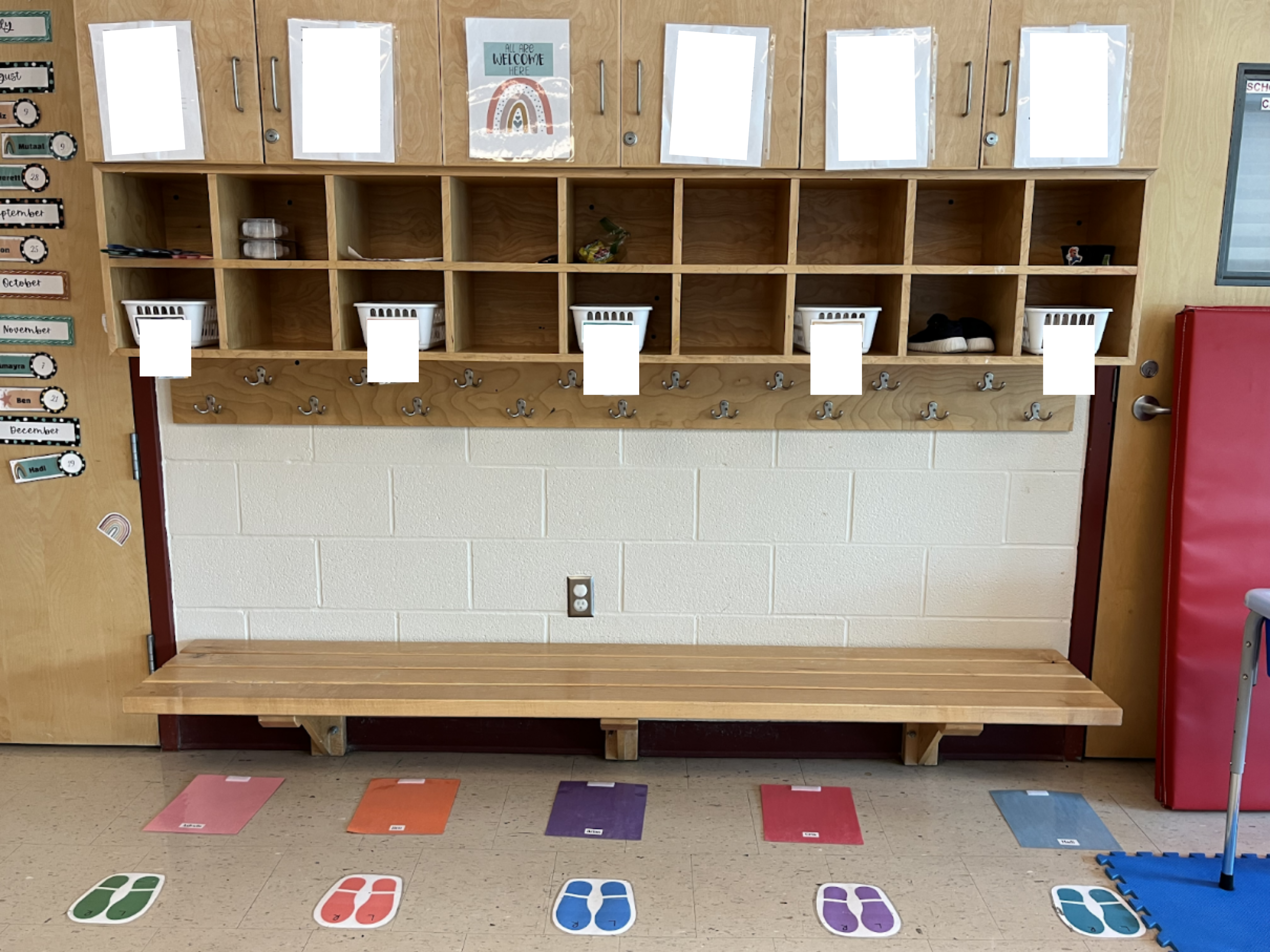Ontario Autism Program – Entry to School
We are currently at capacity for the Entry to School Program. Clients making a referral at this point will be added to a waitlist or placed in July Co-Hort should space permit and parents deem appropriate. Thank you for understanding.
Access important resources on this page
Click on the links below to quickly access important resources shared on this page.
RECENTLY ADDED: Entry to School Phase 1 Caregiver Orientation
Grandview Kids has partnered with Lake Ridge Community Support Services, Resources for Exceptional Children and Youth – Durham Region, and The Regional Municipality of Durham to offer the Entry to School program as part of the Ontario Autism Program, Early Years Pathway. This partnership is known as the Ontario Autism Program – Durham (OAP-D).
About the program
The OAP Entry to School program is funded by the Ministry of Children, Community and Social Services at no cost to parents. The program helps children with Autism Spectrum Disorder prepare to enter school (kindergarten or grade 1) for the first time.
The Entry to School Program has two components:
- The first six months (Phase 1) will focus on building your child’s school readiness skills (“Getting Ready for School”).
- The next six months (Phase 2) will focus on supporting your child’s transition to school.
School Readiness
Children learn best when they are having fun. The Entry to School curriculum reflects the play and inquiry-based learning approach used by kindergartens in Ontario schools. Through engaging and child-led activities, our team will support your child’s development in six skill areas:
- Communication – such as conversation, expressing wants and needs, understanding words and language, social communication, and non-verbal communication
- Play – such as toy exploration, and engaging in group play/games
- Social interaction – such as understanding social boundaries, interactions with peers, and learning new behaviours by observing/imitating peers
- Functional routines – such as following classroom routines, and self-help skills such as dressing and feeding themselves
- Behavioural self-management – such as emotional regulation and being able to wait their turn
- Pre-academics, learning and attention – such as developing new learning skills, working within a group setting, and independent work
Accessing the Entry to School Orientation
Attention caregivers
The Entry to School Orientation: School Readiness Phase presentation is now available on demand! Click here or on the video below to access the presentation.
Two service options are available to families in Durham Region:
Option 1 – Group-Based Service Model
Please review the Entry to School – Group-Based Service Model Caregiver Handbook for more information.
Children attend a group-based, skill-building program for two hours and 45 minutes a day, five days a week, for up to six months. A limited number of part-time options are also available. Children can enroll in either a morning program or an afternoon program. Each group has up to nine children, with a ratio of one staff to every three children. The group setting is intended to be similar to a kindergarten classroom. The environment is set up to help your child learn. The program is offered in several locations across the Durham Region. Spaces are limited, so caregivers are encouraged to review the information below and complete our Online Referral as soon as they have received their invitation via their Access OAP portal. Caregivers will be contacted to discuss available options in the order that their referral is received.
Locations for 2026:
January start:
· Region of Durham, Oshawa (Full)
February/March Start:
· Michaelle Jean Public School, Ajax (Full)
· St. Leo Catholic School, Brooklin (Full)
· Lakewoods Public School, Oshawa (Full)
· To Lake Ridge Community Support Services, Whitby (Full)
July Start (see note below):
· Region of Durham, Oshawa (Limited Capacity)
What to consider before referring your child to the July start cohort
Note: Participating in the July cohort requires a delay in your child’s school start date. Please refer to the considerations below before referring your child for the ETS program beginning in July.
Key considerations for the ETS program starting in July 2026
The July cohort will run from July 13, 2026, to December 17, 2026. Children entering Grade 1 are not eligible for this cohort as they are legally required to attend school starting September 2026.
The transition phase will occur from January 4, 2027, to June 25, 2027.
We encourage families to explore the considerations listed below regarding their child’s participation in this cohort to determine if it is the best fit for them.
Key considerations for participating in the July to December 2026 cohort
School Start Date: Your child will complete the School Readiness Phase of the program in December 2026. As a result, your child will begin school in January 2027. For some families, this may provide your child with more time to develop skills that will help your child be more successful in school.
School Transition: Your child will enter school mid-year, their peers may have adjusted to school routines. Integration into this environment may impact children differently. Teachers from your child’s future classroom may have the opportunity to observe your child in the ETS classroom before their school transition, enabling a more personalized approach to supporting their needs.
Daycare Needs: We encourage families to speak to their current daycare provider if they are planning to remain at their childcare location while in the Group Readiness Phase to ensure their spot is maintained.
Enhanced Specialized Support: Your child will receive intervention in a group-based setting (e.g., Speech-Language Pathology, Occupational Therapy, Applied Behaviour Analysis) from July to December, which can support them with developing the skills needed for a successful transition to school.
This cohort can be a valuable option for children who would benefit from additional support and preparation for school, but it may not be the right choice for all families due to the implications of school enrollment and timing. Please consider your child’s individual readiness and developmental needs when making this decision.
Here are some pictures of last year’s classrooms:
The program is led by staff with experience in applied behaviour analysis, early childhood development and supporting children with Autism Spectrum Disorder. In addition, a multi-disciplinary consultation team will regularly visit each classroom to support the classroom staff with program implementation.
Our multidisciplinary consultation team includes:
- Behaviour Analysts/Behaviour Consultants,
- Speech-Language Pathologists / Communicative Disorders Assistants,
- Occupational Therapists, and
- Transition Coordinators
Option 2 – Integrated Service Model (Only available for the March start date)
Please review the Entry to School – Integrated Service Model Caregiver Handbook for more information.
Accessing the Entry to School Orientation: Phase 1
Attention caregivers: The Entry to School Orientation: Transition Phase presentation is now available on demand! Click here or on the video below to access the presentation.
Please direct any questions or comments regarding the orientation to your Transition Coordinator or Megan Thorpe Ross at mthorpeross@rfecydurham.com.
Parents of children already enrolled full-time in a licensed childcare program in the Durham Region may choose to remain in childcare rather than attend the group-based program described in Option 1. The consultation team outlined above will regularly visit the childcare. They will provide consultation and coaching to your childcare team so that they can support your child’s development in the six skill areas listed above. Enrollment in this service option is a partnership between your family, your child’s childcare and the Entry to School team.
To participate in Option 2, your child must:
- Already be attending licensed childcare full-time (five days a week) in the Durham Region
- Continue to attend full-time licensed childcare throughout the six-month School Readiness period
We are accepting 20 children in the Integrated Service Model in 2026. Enrollment is based on meeting the above eligibility criteria, and registrants will be contacted on a first-come, first-served basis.
What are the differences between the service options?
| Group-based Service Model | Integrated Service Model |
|---|---|
| Half-day group program run by Entry to School staff in classrooms at various schools across the Durham Region | The program is a partnership with your licensed childcare in the Durham Region and occurs while your child attends |
| Coaching and consultation support from the consultation team occurs in the group-based program for group facilitators | Coaching and consultation support from the consultation team occurs in the childcare for educators |
| Each member of the consultation team visits the group weekly, and individual coaching and consultation support for your child is based on your child’s needs | The consultation team provides up to four hours per month of individual coaching and consultation supports based on your child’s needs |
Transition to School
Accessing the Entry to School Orientation: Phase 2
Attention caregivers: Orientation for Caregivers Phase 2 presentation is now available on demand! Click here or on the video below to access the presentation.
The Entry to School team is available to provide up to six months of support to your child’s school team after they start school.
Transition supports may include:
- Supporting your family in completing the paperwork required by the school
- Sharing a written summary of your child’s progress in the six skill areas addressed by the Entry to School program
- Sharing strategies/techniques that were effective in supporting your child’s participation during the School Readiness component of Entry to School
- Sharing other child-specific resources and learnings
- Attending school meetings
- Providing coaching and consultation to educator teams within your child’s classroom
Eligibility for the Entry to School Program
To participate in the Entry to School program, your child must be:
- registered in the Ontario Autism Program
- between three to six years old as of December 31 in the year they are starting school
- starting kindergarten or Grade 1 for the first time
If your child is eligible, you will receive an invitation. Families must receive an invitation to register for the program.
Some children are not eligible for the Entry to School program, including children:
- who are receiving core clinical services
- who have already started attending school
Children who are in the Entry to School program can receive other Ontario Autism Program supports (other than OAP core clinical services), special needs supports and/or early intervention programs at the same time. For example, your child can receive foundational family services or urgent response services at the same time as the Entry to School program.



